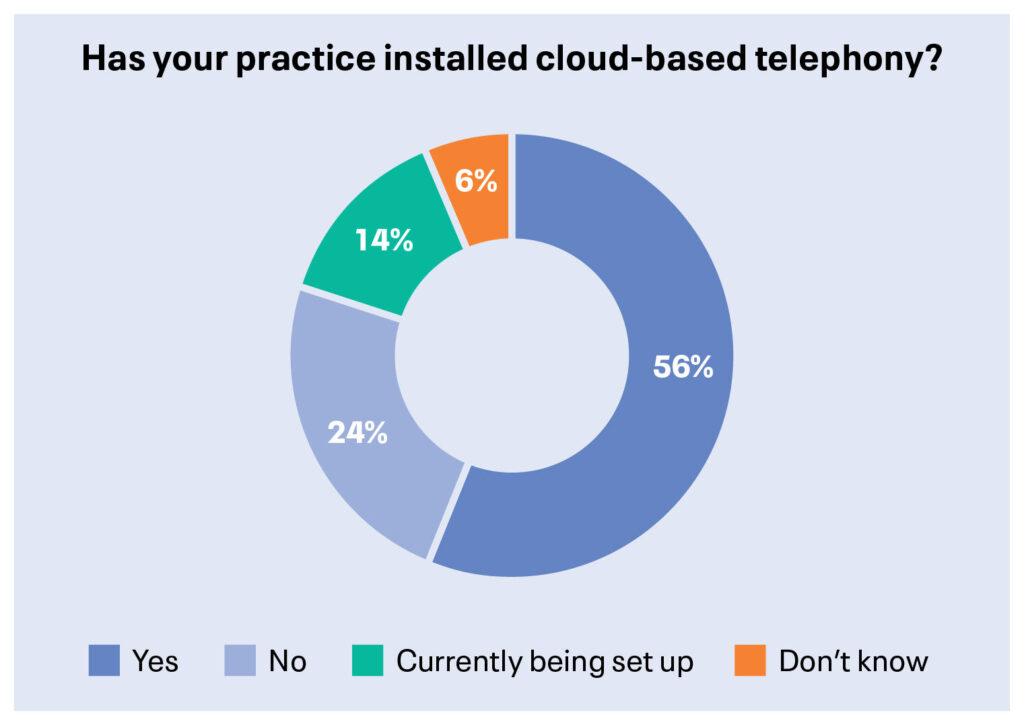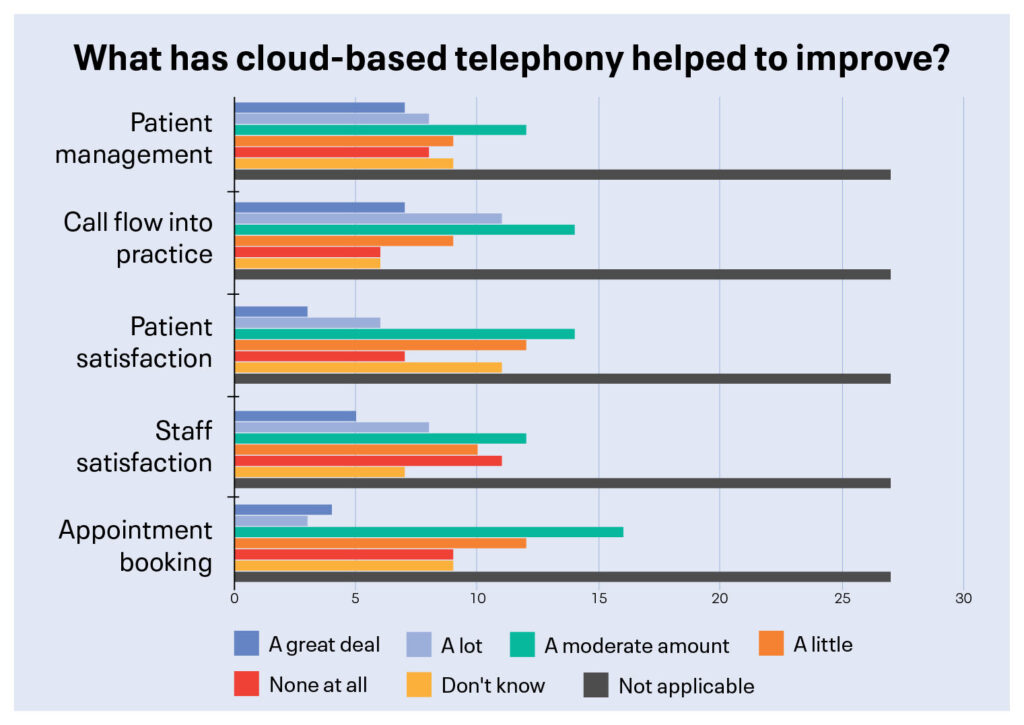
This site is intended for health professionals only

Around one-in-10 practices (12.5%) are spending less than £10,000 on cloud telephony, a survey of practice and PCN staff has shown.
The findings are part of Pulse PCN’s Autumn 2023 survey of primary care professionals on the use of AI and digital tools in general practice.
Nearly half (46.2%) of respondents said they do not know how much their practice is spending at all. But of those who gave a number, most (12.5%) said their practice spent between £501 and £10,000. And one-in-10 (11.3%) are spending above £10,000.
Cloud telephony was hailed as a key way to increase access to primary care and in May 2023 it was announced that as part of Modern General Practice Access, £240 million would be re-targeted for practices still on analogue phones. This could mean around £60,000 of support over two years for practices.

More than half of GPs (51.3%) believed cloud-based telephony had improved call flow into practice, nearly a quarter (22.5%) agreed it had been improved a great deal or a lot. And 7.5% felt it had not improved at all.
Similarly, nearly half (45%) felt patient management had been improved, while one-in-10 (10%) felt that cloud-based telephony had done nothing to improve it.

The Government and NHS England pushed GPs to implement cloud-based phone lines in its 2023-24 contract, outlining the cloud-based telephony mandate.
In a letter to all GP practices in England and PCN directors (6 March 2023), NHS England advised that only cloud-based platforms will be supported from the end of 2025, with all analogue integrated services digital network (ISDN) and public switched telephone network (PSTN) lines will be removed for use in all home and business settings.
According to the 104 respondents, Surgery Connect is the most used cloud-based telephony provider, with 24.1% stating they use it in their practice, while BT is among the lowest (1.3%). Nearly a third (27.8%) said they do not know.
The list of suppliers was expanded following the survey and can be found here.
Practices were also advised that to guarantee funding for digital telephony, eligible practices must have signed a digital telephony contract by 15 December last year, to allow for implementation by the end of this financial year.
However, depending on demand from practices, NHS England said it may need to ‘prioritise against available funding’, based on whether GP practices can already meet functional requirements including call-back and call queuing.
NHS England also said practices will be prioritised based on value for money, such as the incoming supplier cost and their engagement with the General Practice Improvement Programme (GPIP).
According to NHS England, more than 80% if practices were using digital telephony as of November 2023, up from 50% the year before.
There are currently 18 suppliers listed on the Advanced telephony Better Purchasing Framwork (BPf) which is due to be replaced this year by The Digital Care Services Cloud Telephony framework.
This is aimed to set the strategic and commercial direction for communications and telephony services in general practice and primary care. It will support practices and PCNs and their integrated care boards in commissioning advanced GP telephony systems built around cloud-hosted Voiceover IP (VoIP) systems, which include clinical system integration, remote access and peak demand management functionality.